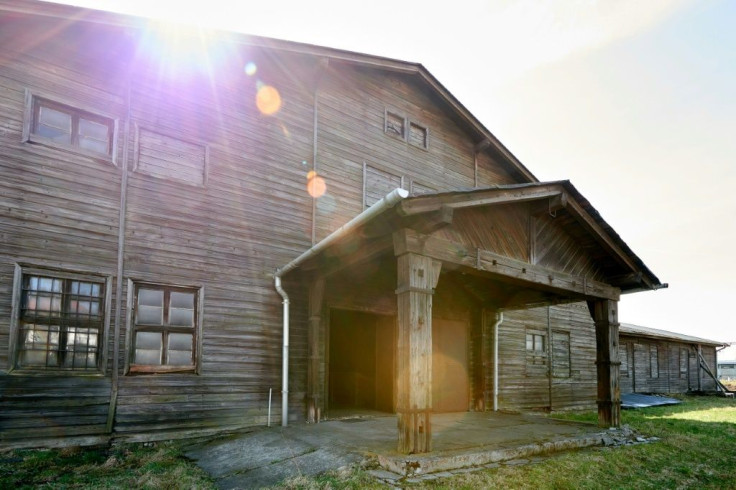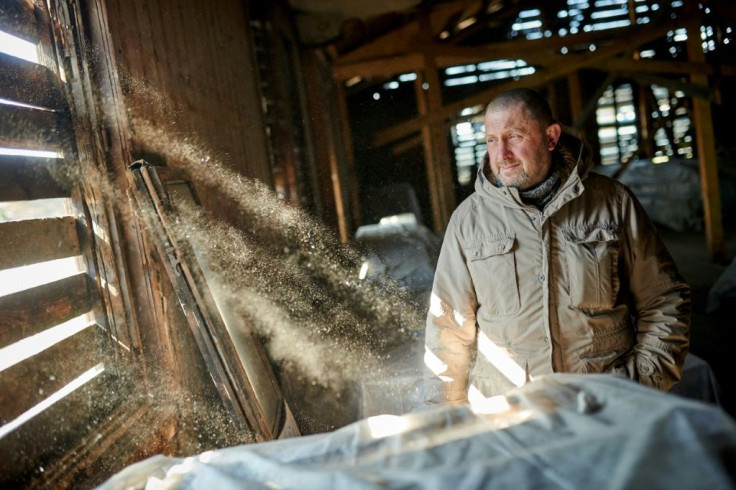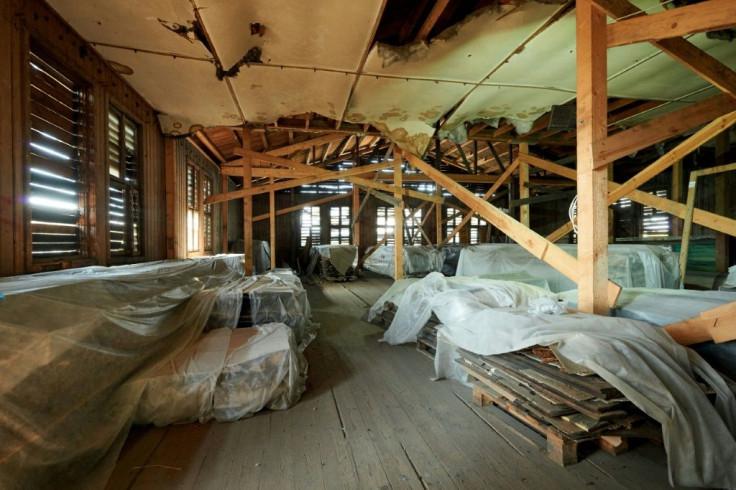Former SS Canteen At Auschwitz Bears Witness To Holocaust History
A Polish foundation hopes to restore a canteen where SS guards ate and sought distraction after long days of killing at the former Nazi German death camp Auschwitz-Birkenau, to bear witness to a forgotten page of Holocaust history.
Built in March 1942 at Auschwitz -- Europe's largest World War II death factory -- the massive dining hall could house up to 4,000 people. After the war it served as a cereal warehouse before it was abandoned and gradually fell into ruin.

The SS "came here to have a bite, find some distraction, have a drink, take part in ceremonies, concerts, parties -- all in the shadow of the monstrous crime that was Auschwitz-Birkenau," said Dagmar Kopijasz, one of the project organisers.
"This building was the focal point of the family and personal life of the SS... serving as a place where they came to forget their work which was to kill people," Kopijasz told AFP at the site, where Nazi Germany built its largest death camp.
His organisation, the Foundation of Memory Sites Near Auschwitz-Birkenau (FPMP), was founded eight years ago to save from oblivion items and buildings linked to the former death camp that are outside its bounds and beyond the legal domain of the site's official museum.

"From a historical point of view, the former canteen is interesting in terms of the social life of the camp staff," Auschwitz museum spokesman Pawel Sawicki told AFP.
Once restored, the building could host official ceremonies or cultural events related to the history of the camp and the Holocaust, according to Kopijasz.

It could also contain a kind of "wall of shame" listing all the SS names, maybe even with photos.
"That would complete the message" of Auschwitz, as it would serve as a reminder of the banality of evil at the former death camp, Kopijasz said.
"We've reduced the image of a Nazi to that of a savage beast who does nothing but kill. But that's not the entire truth," he added.
"These were also ordinary people -- professors, merchants, the neighbour next door -- who committed these crimes. We must not forget that."
Although the foundation has already begun its restoration work, Kopijasz said that to complete it they might have to appeal for international crowdfunding.
"We could use around 30 million zloty (6.6 million euros, $7.9 million)," he said.
Nazi Germany built the Auschwitz death camp in the southern town of Oswiecim after occupying Poland during World War II.
The Holocaust site has become a symbol of Nazi Germany's genocide of six million European Jews, one million of whom died at the camp between 1940 and 1945 along with more than 100,000 non-Jews.
© Copyright AFP {{Year}}. All rights reserved.





















